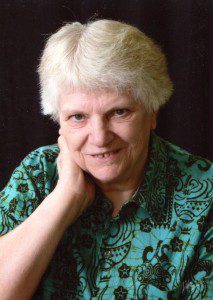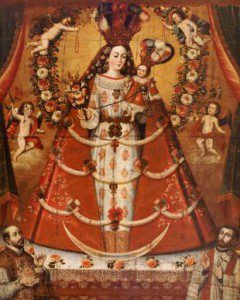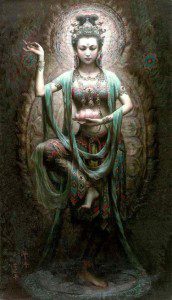 Christians miss insight into divine breadth without its female expression and distort perspective when male divine dimensions dominate. Yet the Ultimate, known by diverse forms and names, is neither sexual nor limited as our descriptors may suggest. Wisdom or the Spirit figure—Hokmah in Hebrew, Sophia in Greek and Sapientia in Latin—has for centuries personified God. Non-biblical religions also include forms of female, creative, divine energy known by terms like Shekinah, Shakti, and Chi. This blog introduces the concept and encourages the reader to further study.
Christians miss insight into divine breadth without its female expression and distort perspective when male divine dimensions dominate. Yet the Ultimate, known by diverse forms and names, is neither sexual nor limited as our descriptors may suggest. Wisdom or the Spirit figure—Hokmah in Hebrew, Sophia in Greek and Sapientia in Latin—has for centuries personified God. Non-biblical religions also include forms of female, creative, divine energy known by terms like Shekinah, Shakti, and Chi. This blog introduces the concept and encourages the reader to further study.
Twenty years ago I attended the ecumenical Re-Imagining conference in Minneapolis—a profound gathering of nearly two thousand women. To share worship rituals with milk and honey, join in global song, and support justice themes prompted an aura of togetherness. To invoke Sophia via a Hawaiian chant before each speaker began enabled a Presence distinct. Flack followed from sources threatened by traditional views. But the outcome persisted. Elizabeth A. Johnson returned with me from the event via her She Who Is. Not only did that book open up Proverbs texts and move me into the Wisdom of Apocrypha content, long denied most Protestants, I learned of the extent to which Sophia’s activity was transferred to Jesus the Son, to the demise of Christ-Sophia.
Known by diverse forms and names in scattered cultures, Divine Presence may mirror goddess Isis from Egypt, Ishtar in Babylonia, Inanna in Sumer, Kuan-Yin in China, or Sophia in the Judeo-Christian tradition.
Hear Sophia in Prov. 8:
“Ages ago I was set up, at the first, before the beginning of the earth . . . I was there . . . I was beside the Creator as a master workman.”
Aware of the mysteries of the created order or Earth’s ways, she rejoiced in results. Among other texts, a passage describes divine Wisdom as “breath of the power of God, radiance of the glory of the almighty . . . and a spotless mirror of the working of God.” (Wisdom 7:22b-8:1)

Sophia’s image changed through time. During Hellenistic 6-4th centuries BCE (Before Common Era) powerful queens with political influence marked the Mediterranean area. Interchangeable terms—Spirit/Wisdom/Sophia for the female figure— appeared within Judaism to protect against goddesses. Sophia first appeared in Hebrew literature as a trait—God’s Wisdom. From co-creator with God (Prov 3:19), to sign of Divine power and glory (Book of Wisd 7:25-26) noted with the Torah, her attributes—love and wisdom—next appeared within Jesus who had also pre-existed all things and dwelt with God. (Jn 1:1-2) Early Christians viewed the sage Jesus as a prophet or child of Sophia’s until named “Christ-Sophia,” a name that helped bridge peoples. Patriarchal history then subsumed Sophia (Wisdom) under Christ (Logos). Historian-theologian Rosemary Radford Ruether observes that a Wisdom focus could easily have continued.
Today people again ‘hear’ Sophia’s call for broadened divine image, but with varied names. Recall Chung Hyun Kyung’s address to the World Council of Churches Assembly held at Canberra early ‘90s. As Hyun Kyung knew the screams of Han-ridden spirits among her Korean people, she called those gathered to hear spirits of diverse folk: of Hagar known in Jewish and Muslim texts, of people killed during the Crusades or in Holocaust gas chambers, of Gandhi. All who harm Earth, Air, or Water through greed might hear the Holy Spirit in order to repent.

Whether led by Eastern Chi—life force, energy, or the idea of wind as Spirit—Kwan Yin, or shakti, the power appears. Every living thing has Chi. Not the dualism of Greek spirit (pneuma) and body, Chi conveys overall energy. And Kwan Yin, the Buddhist “Spirit” of Compassion, models the bodhisattva who chooses to linger while others achieve spiritual enlightenment. Among the multi-meanings in India of shakti is creative, divine, female power, the Supreme Divine Mother or her attributes, the many goddesses known to manifest shakti, or the consort linked with the strong male god Shiva who depends on her creative power (shakti). Shaktism (the doctrine of power) has many forms; it pervades the material world.
A concluding paragraph notes Judaism’s Shekinah, God’s presence. From the Hebrew verb shakhan meaning “to dwell,” Shekinah ever- dwells among the people. Whether in the Tabernacle or the early Temple’s Holy of Holies central shrine, whether with Israelites wandering in the wilderness or enduring exile, whether in each Saturday’s Shabbot candle-lighting, whether in prayer or in repairing the world, her divine energy links human and divine.
Through radiance, protection, Wisdom, or compassion may creative energy emerge, whatever her name!
Dorothy Yoder Nyce DMin, from Goshen, Indiana, is a retired teacher, writer, and activist with years of interfaith experience, in part when living in India.











